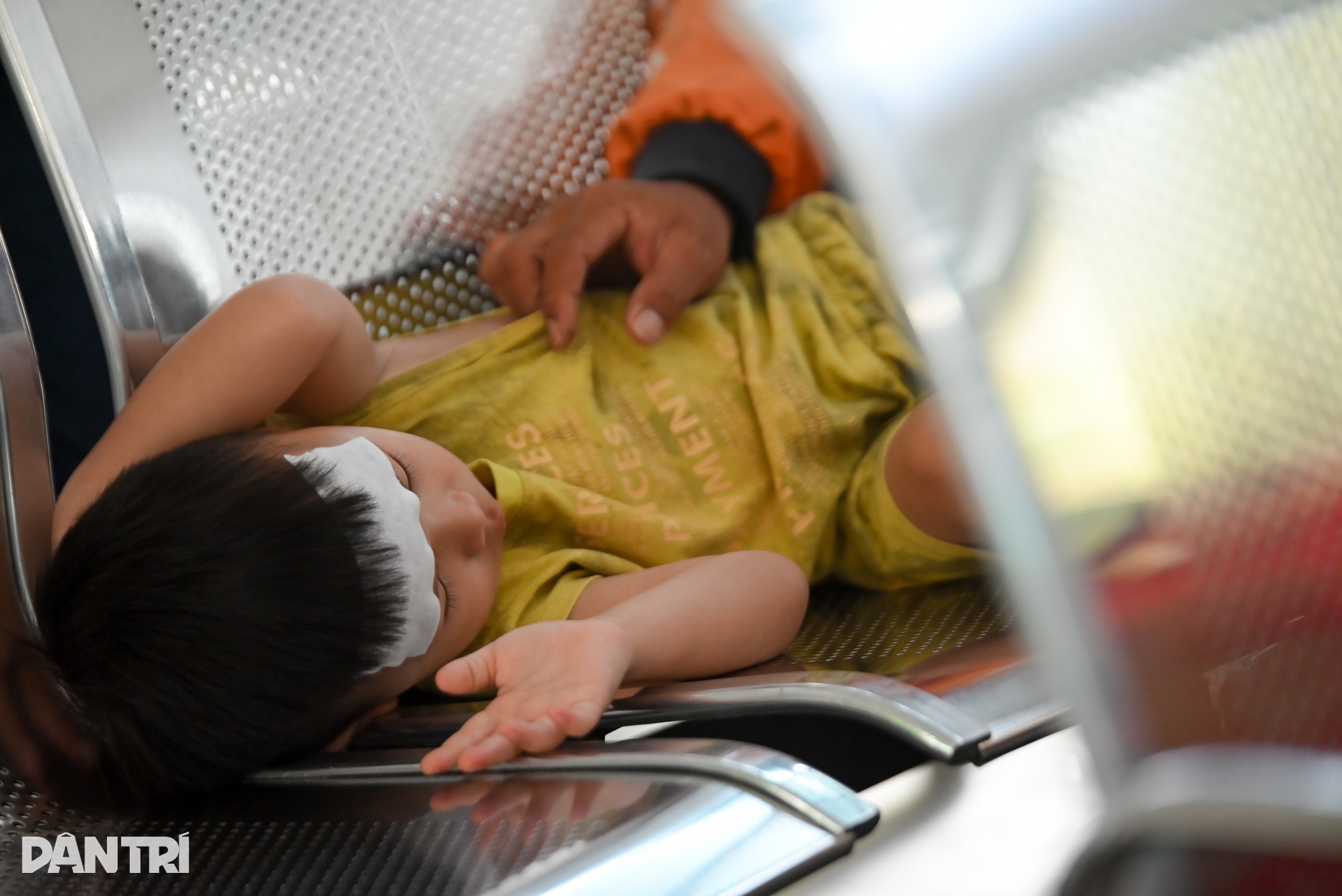
Since 6am, baby B. (4 years old) has been riding a motorbike with his parents from Dong Nai to Ho Chi Minh City for a medical examination. For the past two days, the baby has been having a high fever, sometimes up to 41 degrees Celsius, he is lethargic, and vomits every time he eats. In the lobby of the Examination Department, Children's Hospital 2, the baby is lethargic, eyes closed, lying on a bench, occasionally coughing lightly.
"During the days my child was sick, my wife and I took turns staying home to take care of him. Seeing that he was still sick and not getting better after taking medicine, my wife and I told each other to take him to a hospital in Ho Chi Minh City for a check-up," Mr. H. (32 years old) shared with Dan Tri while waiting for his wife to complete the procedure for his child's medical examination.

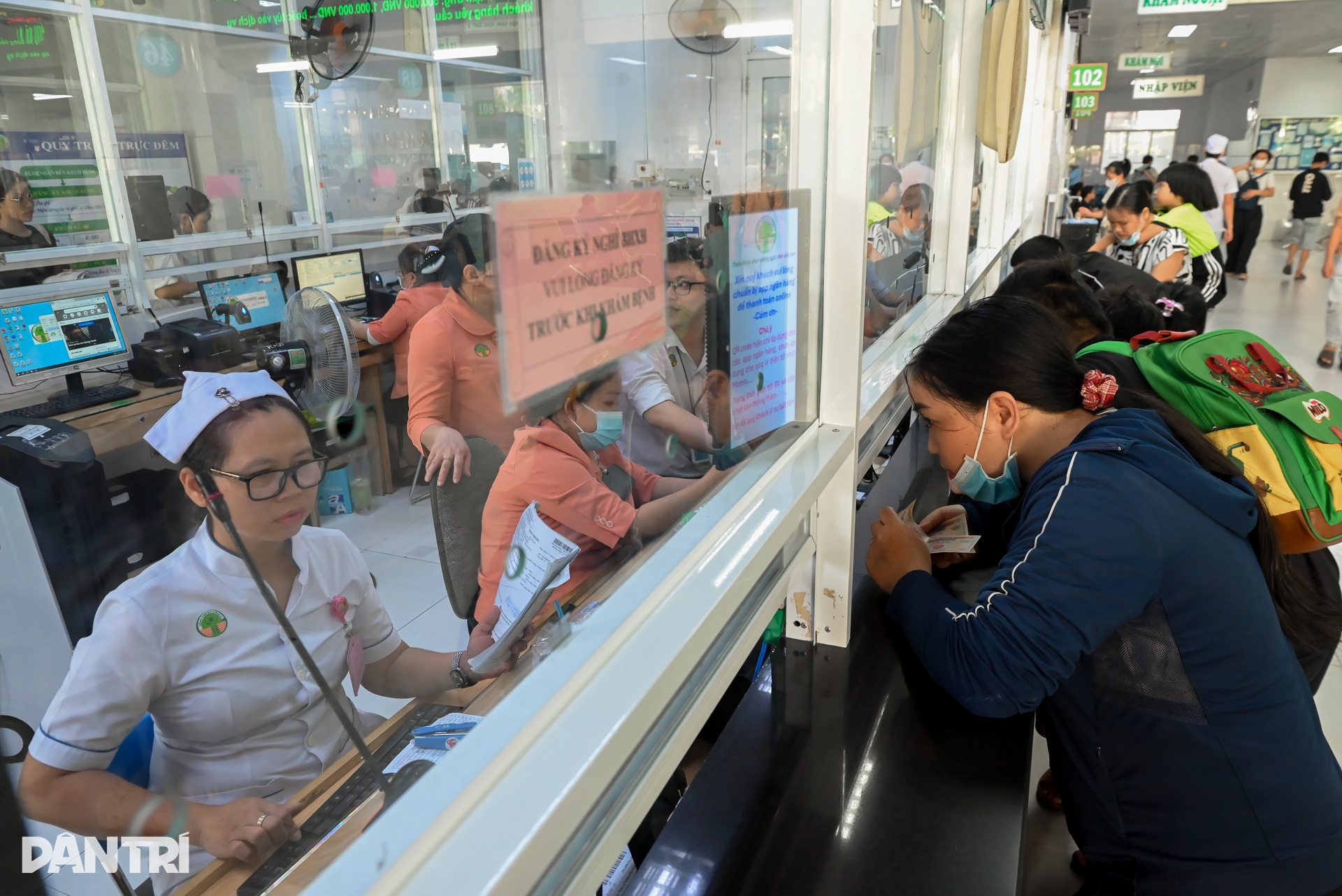
In recent days, many hospitals in Ho Chi Minh City have recorded a sharp increase in the number of cases of acute respiratory infections. At Children's Hospital 2, these cases have increased sharply, especially during the transitional season from July to November, with a peak from September to November.
According to the latest statistics, in the first week of October, the hospital had an average of 1,760 children coming to see a doctor for respiratory diseases each day, nearly double compared to the beginning of September. The number of hospitalizations also increased from 286 to 475 cases/week.

According to Dr. Tran Nguyen Khoi, Deputy Head of the Examination Department, most of the children who come for examination are under 5 years old. At this age, their resistance is still weak, their immune system is not fully developed, and they are very susceptible to illness and need to be hospitalized.
"Currently, the weather is entering the transitional season, with high humidity. In addition, polluted environments or children's living spaces that lack ventilation, air conditioning that is too cold or dry, reduce their resistance. In addition, this is also the beginning of the school year, children are in close contact, crowded, and easily spread acute respiratory infections," the doctor analyzed.
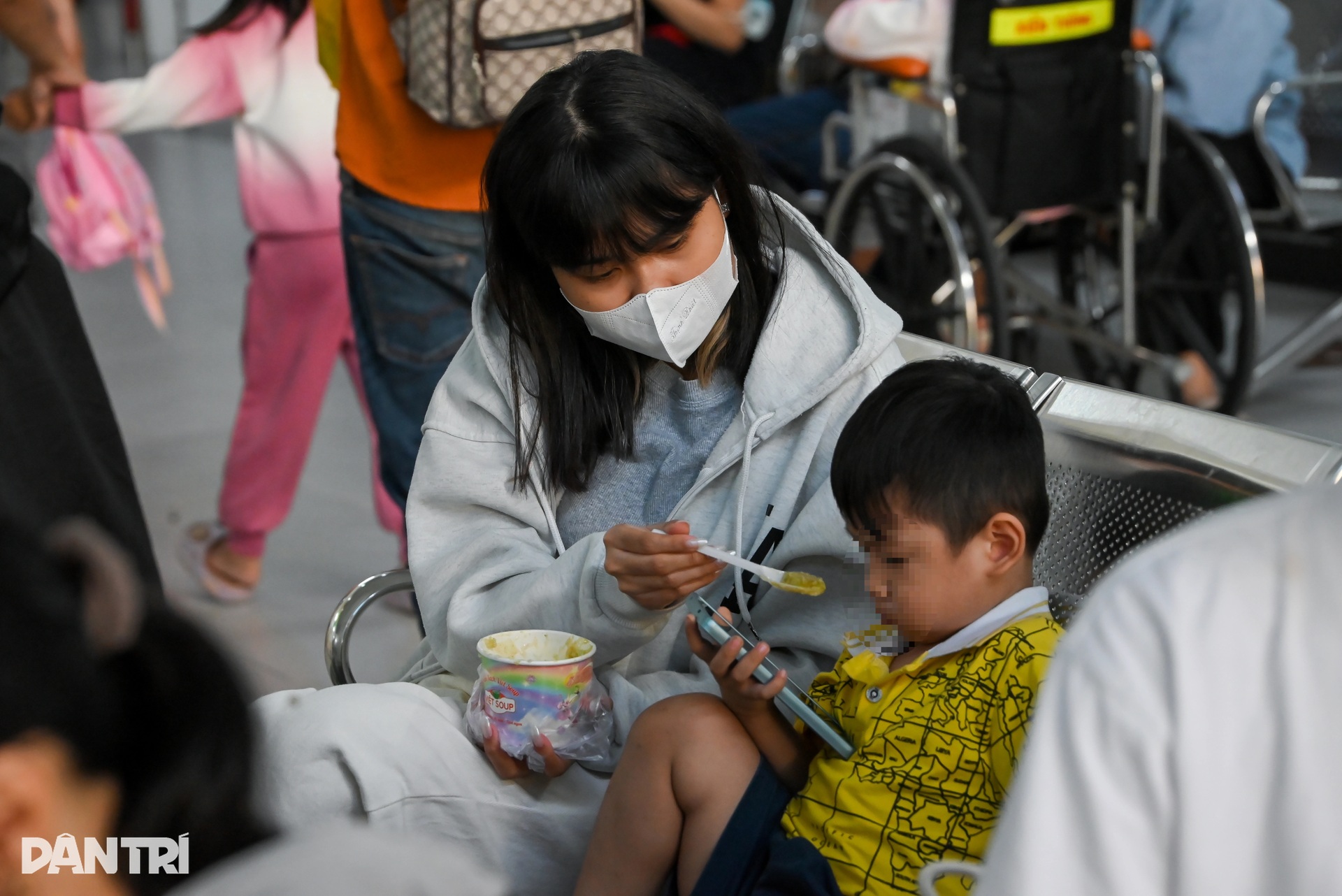
For the past week, X. (3 years old, living in Phuoc Long ward, Ho Chi Minh City) has been continuously coughing, having a runny nose, and having a high fever that does not go down despite taking medicine. A few days ago, X. was taken by his mother to a private clinic near his home for a check-up. Here, the doctor diagnosed him with a sore throat and prescribed him medicine, but he did not get better after a few days.
"My child rarely gets sick, doesn't go to school, and everyone in the family is healthy, so I can't determine the source of the disease. For the past few days, seeing my child's health 'fluctuating' and not improving, I had to take time off work to take my child to the hospital for a check-up," said X's mother.

In the hallways in front of the clinics, parents and children sat on the benches. The Respiratory Clinic was constantly welcoming children in and out for examination.
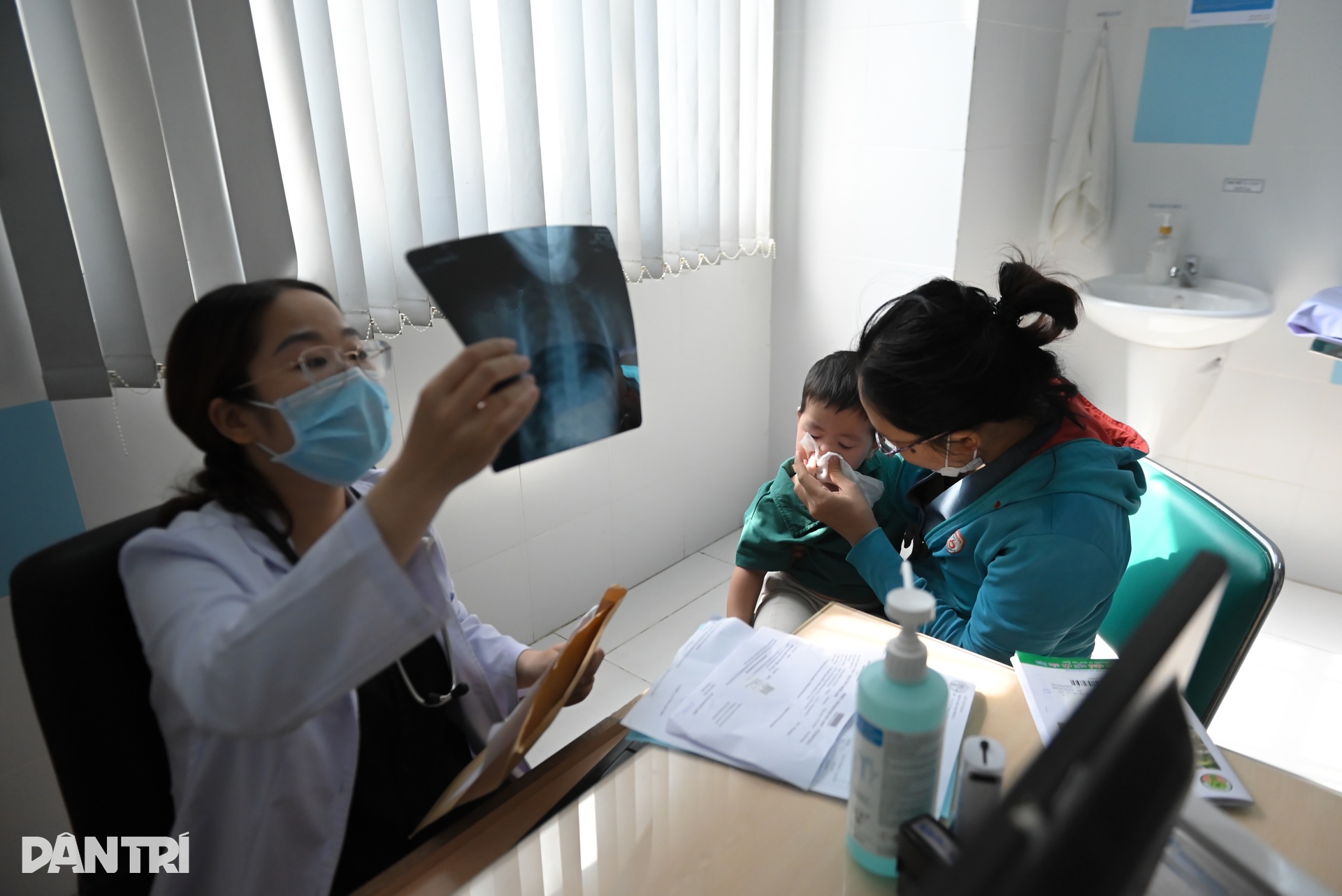
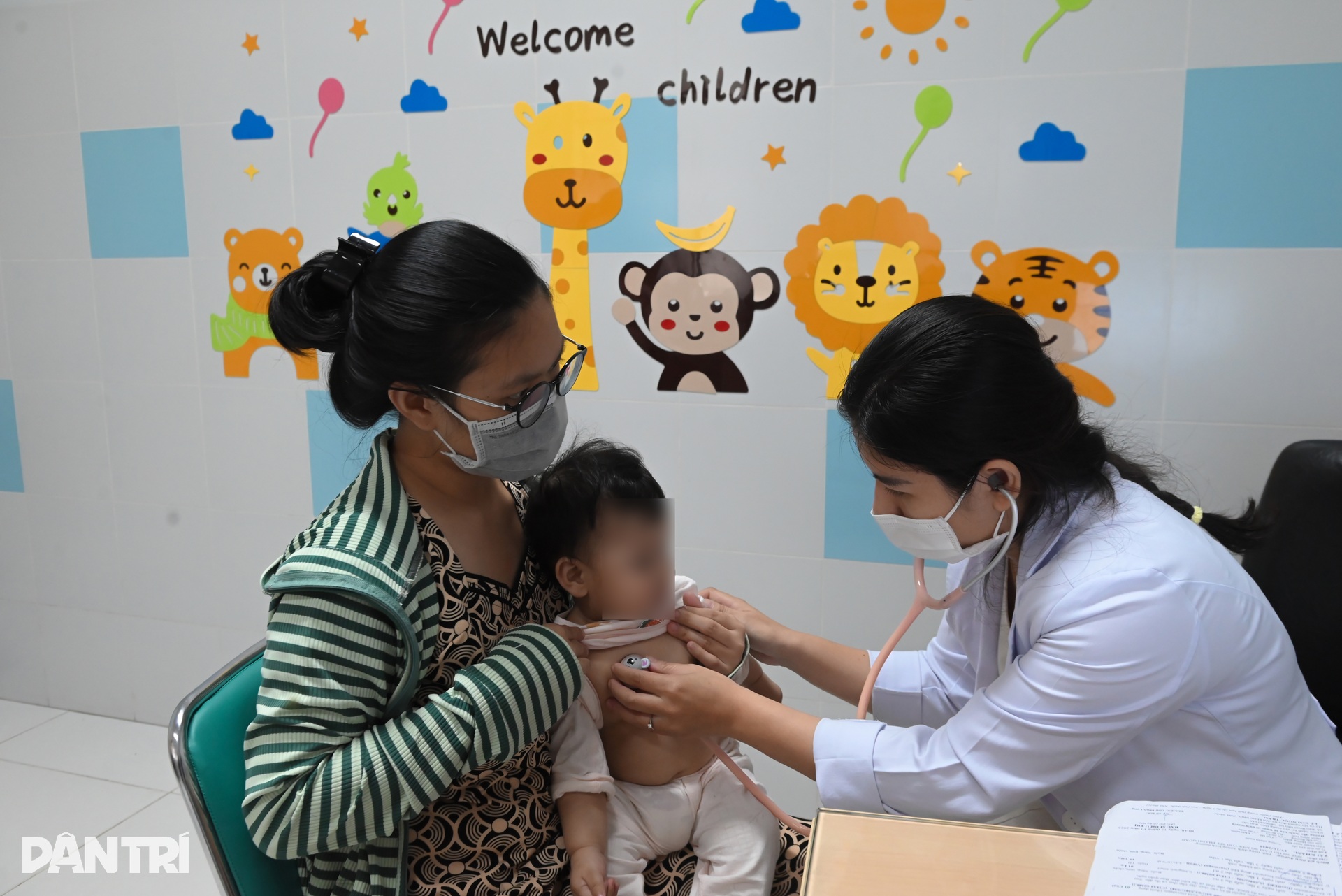
According to Dr. Khoi, when hospitalized, children often have symptoms such as sudden high fever, lasting 1-3 days, cough, wheezing, difficulty breathing, constant crying, refusal to eat or breastfeed. Through examination, doctors determined that the child had an acute respiratory infection, which could be an upper respiratory infection (pharyngitis, rhinopharyngitis) or a lower respiratory infection (pneumonia, bronchitis, asthma). About 20-30% of children with lower respiratory infections need to be hospitalized.

At the Respiratory Department 1 of Children's Hospital 2, there are currently more than 180 children being treated, with 20 emergency beds, many of whom need oxygen and positive pressure support. The main diseases are pneumonia, bronchitis, bronchiolitis or asthma.

A 2-month-old patient with pneumonia is being treated in the emergency room, Department of Respiratory Medicine 1.

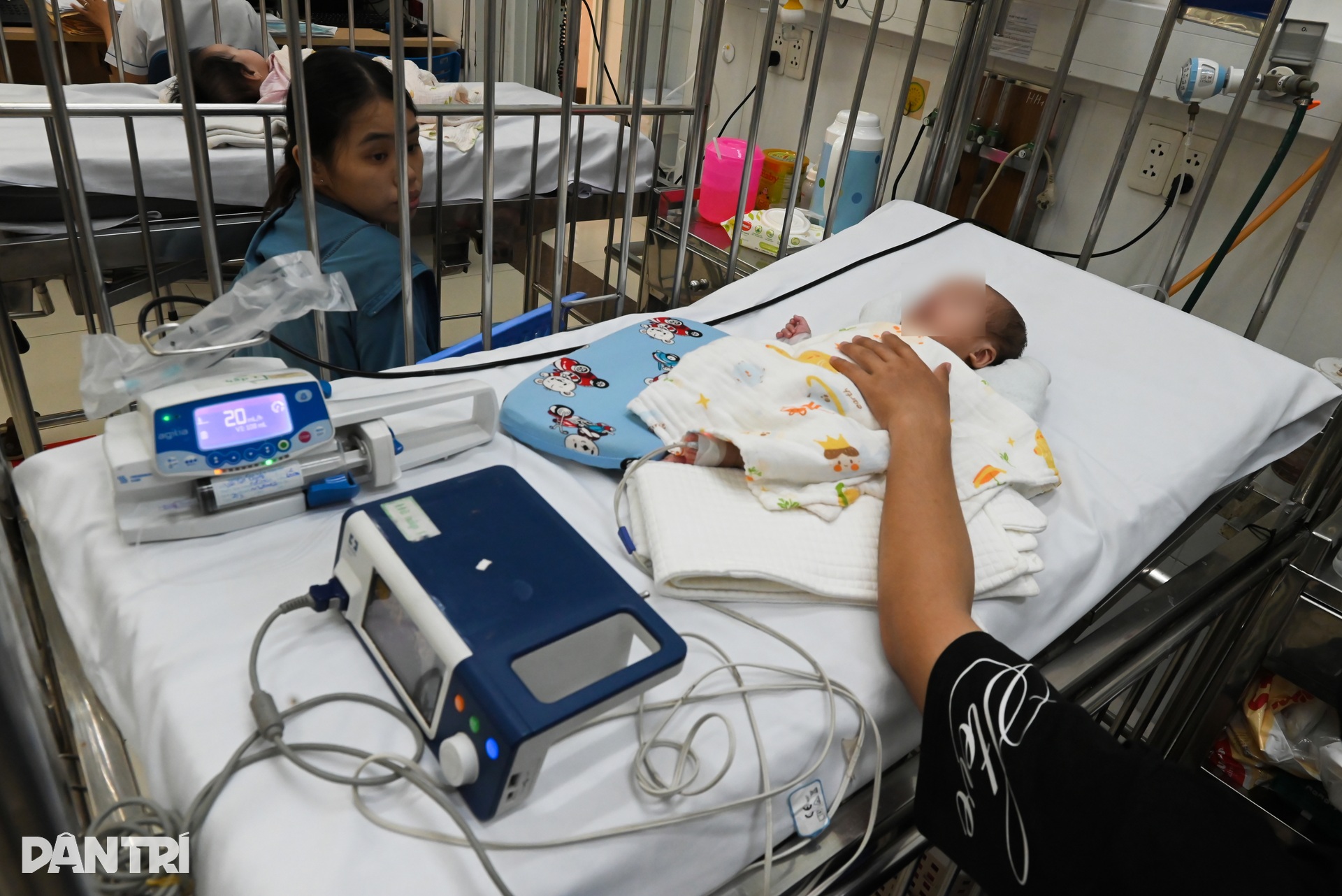
Respiratory infections are spread through droplets, contact with contaminated surfaces, or the air in closed spaces. To prevent the disease, people should wear masks in public places, wash their hands regularly, cover their mouths when coughing, keep their homes well-ventilated, and avoid dust and cigarette smoke.
In particular, young children, the elderly and people with chronic diseases should be vaccinated against influenza, pneumococcal, whooping cough or respiratory syncytial virus (RSV) as prescribed by a doctor. In addition, eat a nutritious diet, exercise regularly and rest properly to keep the body healthy and less likely to get sick.
Source: https://dantri.com.vn/suc-khoe/tre-dong-loat-do-benh-mot-benh-vien-o-tphcm-co-luot-kham-tang-gan-gap-doi-20251017124353515.htm


![[Photo] Closing ceremony of the 18th Congress of Hanoi Party Committee](https://vphoto.vietnam.vn/thumb/1200x675/vietnam/resource/IMAGE/2025/10/17/1760704850107_ndo_br_1-jpg.webp)

![[Photo] Immerse yourself in the colorful musical world of “Secret Garden Live in Vietnam”](https://vphoto.vietnam.vn/thumb/1200x675/vietnam/resource/IMAGE/2025/10/18/1760805978427_ndo_br_thiet-ke-chua-co-ten-41-png.webp)
![[Photo] Collecting waste, sowing green seeds](https://vphoto.vietnam.vn/thumb/1200x675/vietnam/resource/IMAGE/2025/10/18/1760786475497_ndo_br_1-jpg.webp)
![[Photo] General Secretary To Lam attends the 95th Anniversary of the Party Central Office's Traditional Day](https://vphoto.vietnam.vn/thumb/1200x675/vietnam/resource/IMAGE/2025/10/18/1760784671836_a1-bnd-4476-1940-jpg.webp)
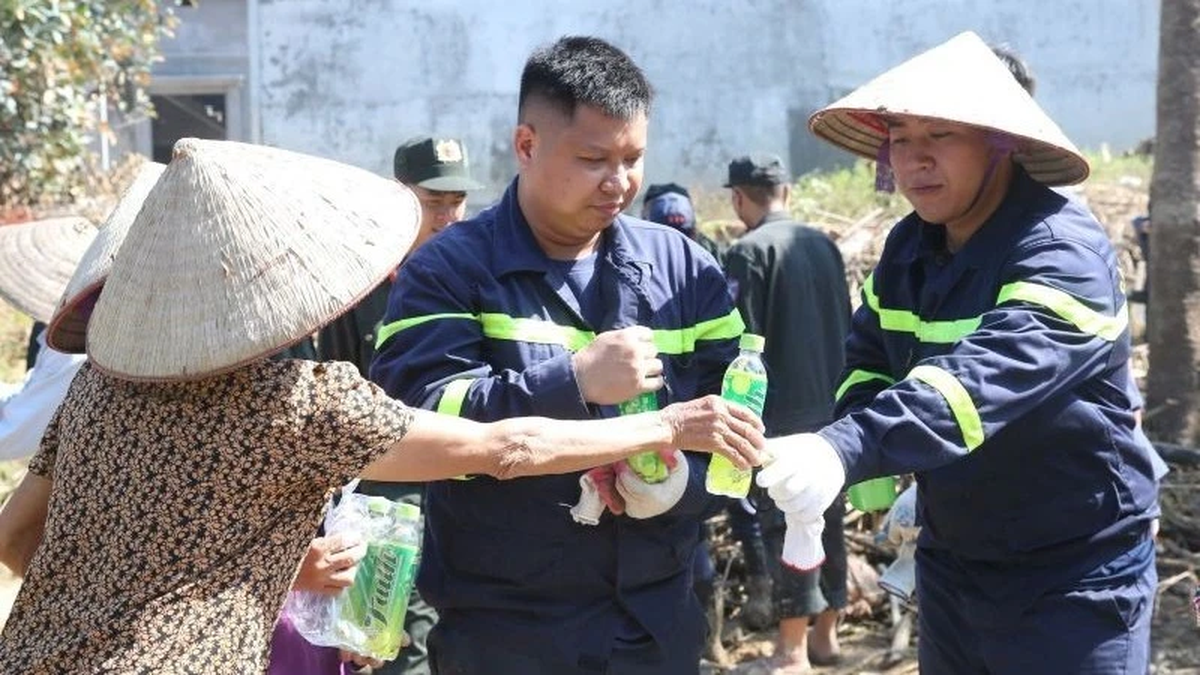

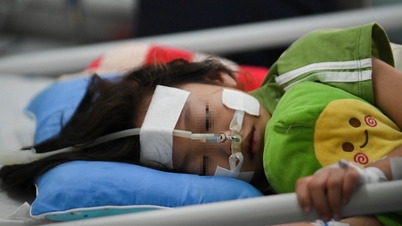


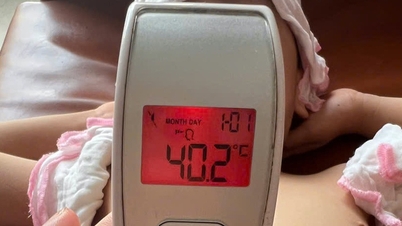

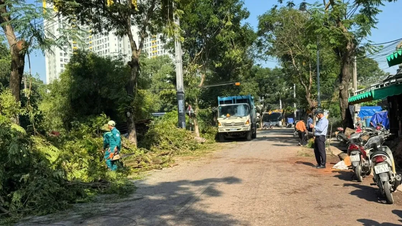

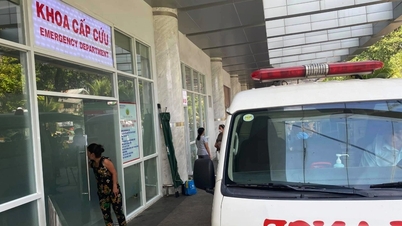





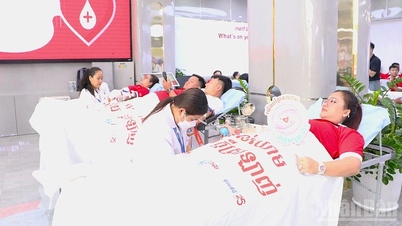









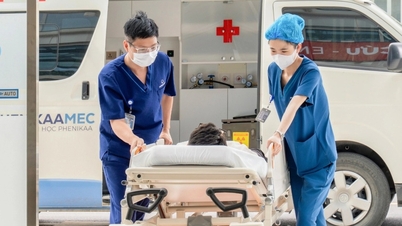








































































Comment (0)